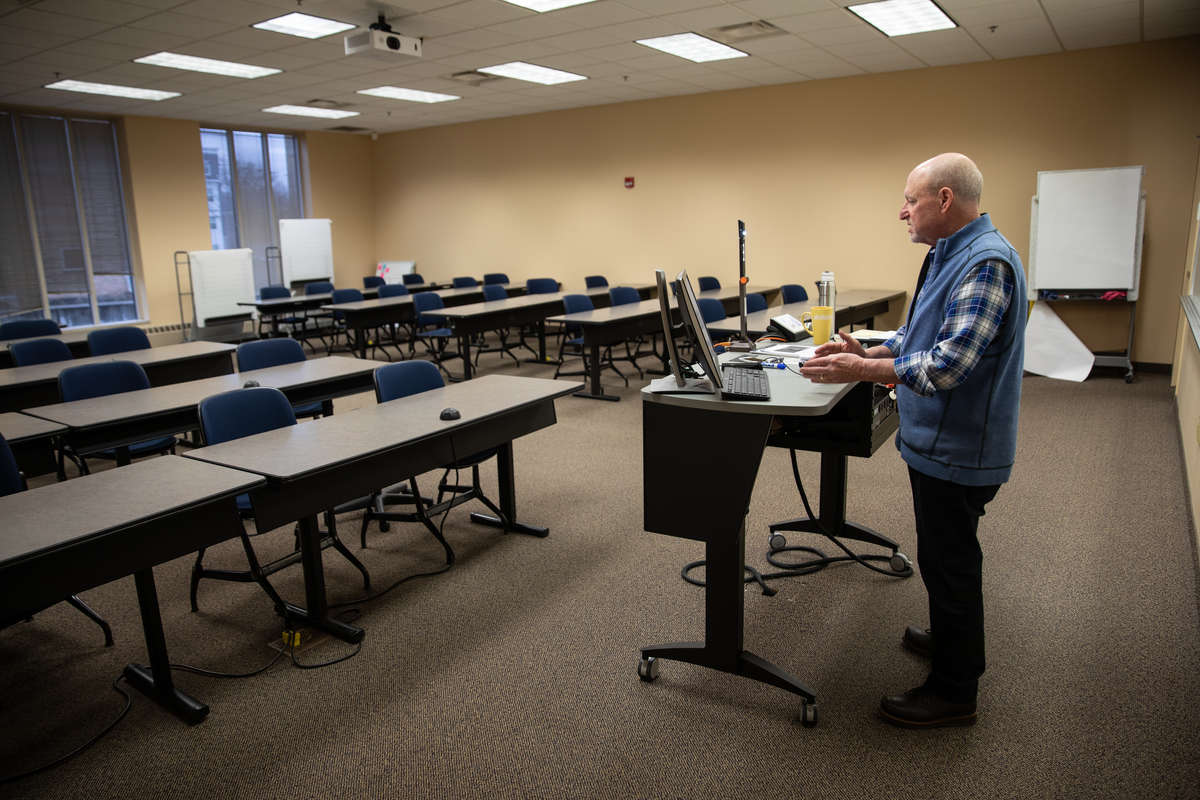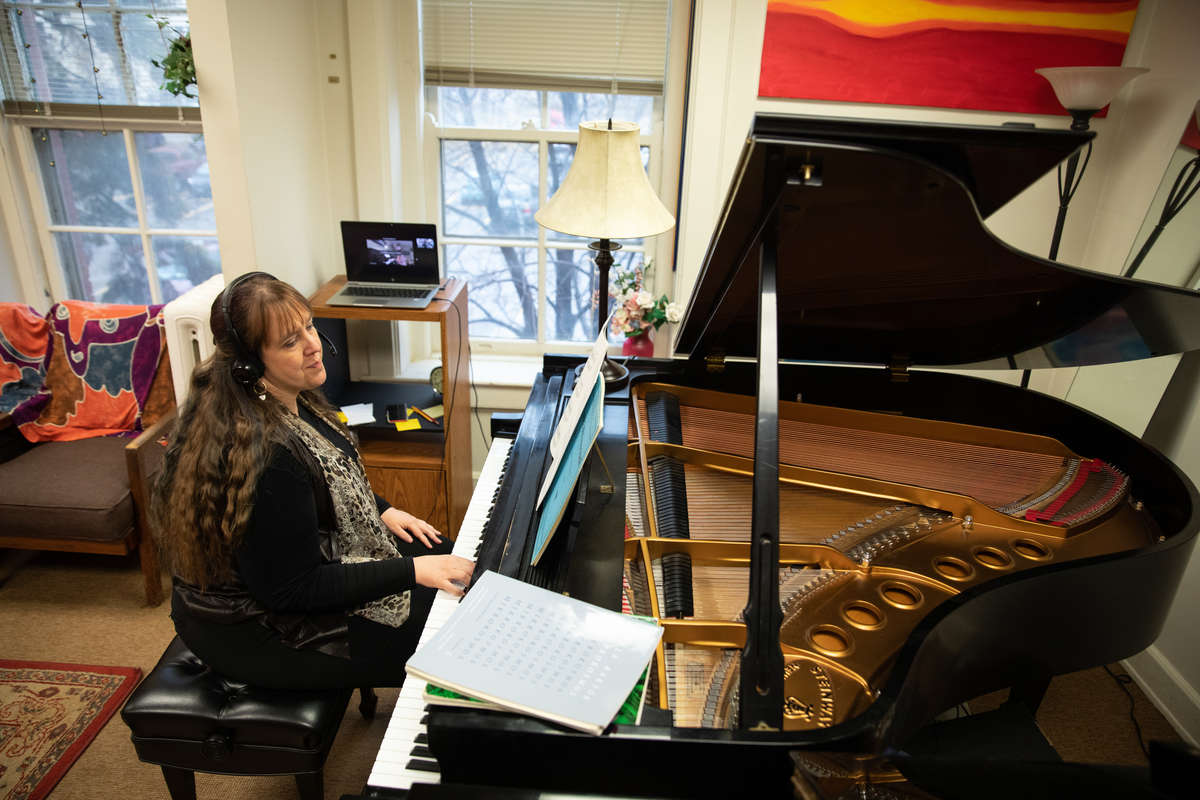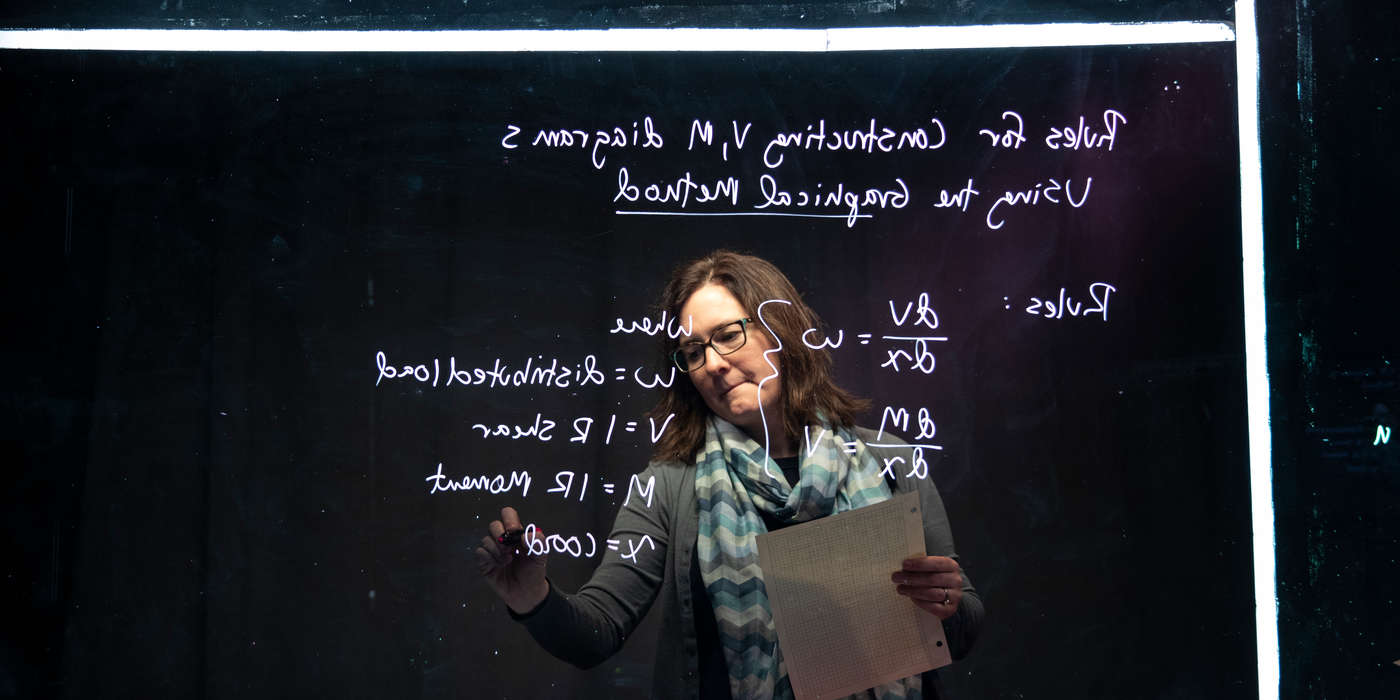The spread of coronavirus and the COVID-19 disease it causes has had an unprecedented impact on life around the globe. Within the St. Thomas community, that impact is being felt in a myriad of ways, including in a full shift to online learning.
An initial decision on March 12 to move temporarily to online courses transitioned on March 16 to online courses for the rest of the semester; the certainty that decision created also calls for a massive shift: More than 900 faculty members – teaching more than 2,000 courses to more than 10,000 undergraduate and graduate students – are moving the educational experience completely online.
While far from normal, the St. Thomas community has already shown an incredible response in rising to the occasion. As it does, it is drawing from a foundation of online capability built in recent years and rallying around the knowledge that, for the foreseeable future, advancing the common good through education is happening online.
“All over campus, I’m hearing stories of colleagues stepping up, working extraordinarily long hours, and supporting each other,” Provost Richard Plumb wrote in a March 18 email to faculty. “This is what St. Thomas is all about.”
Drawing on experience
Amidst the constantly shifting reality of life in Minnesota and the United States in the past week, every Tommie has faced their own unique situations and circumstances – many of them extremely challenging. For St. Thomas faculty – and for staff in the university’s St. Thomas E-Learning and Research (STELAR) center – it also meant leading a complete migration of the educational experience online.
“My first thought was that the students are looking to me for leadership, normalcy and continuity. It’s my job to make it as smooth as possible for them,” School of Engineering Professor Katherine Acton said.For Acton and hundreds of other St. Thomas faculty members, that goal is more feasible because they could draw on experience: With the support of staff from STELAR, which launched in 2016, the university has had a huge growth of online education in recent years, including a more than 1,000% growth in summer courses, according to Ed Clark, CIO and vice president for innovation and technology services. I spoke with Clark last fall about the St. Thomas community embracing the idea of expanding and improving its online education; he said St. Thomas’ faculty were exceptional in their recognition of that effort being part of improving students’ overall academic experience.
“It’s been this guiding light of, ‘Let’s be really good in this space and keep what's special about St. Thomas even in those online classes,’” he said.
While no one could have anticipated the dramatic, urgent shift to completely online learning for all courses, St. Thomas is in a vastly better position to make the move because so many faculty members and students have experienced online courses.

Professor Acton works on a lesson in the STELAR Media Lab.
“With STELAR, the use of smart boards, even things like Panopto and the general increased use of Canvas … faculty are having an easier shift. St. Thomas has great resources already set up,” said Chloe Weber, a senior who will graduate in May with business management and engineering degrees. “It’s comforting to know things have been in place for a while and it’s not square one.”
“There’s a huge sense of, ‘Thank God we’ve been preparing for this for the last number of years,’” said Karin Brown, an instructional designer with STELAR who works with faculty to develop their online curriculum and pedagogy.
Brown and her colleagues have been intensely working in the past two weeks to scale up the resources available for faculty, including a robust range of offerings in a OneStThomas site; the development of an Instructional Continuity Canvas site; coordinating 24/7 support from Canvas employees to answer faculty questions; and open sessions and space in STELAR for faculty to work directly with STELAR staff, including recording class presentations.
“All of us in STELAR are trying to think about how we can be creative at this time,” Brown said. “This is unprecedented. We’re trying to be creative, encouraging faculty to be creative. ‘How can we make the best of the situation in front of us?’ That’s what everyone is approaching this with.”
“We have so many resources as a university. STELAR is the cornerstone of this whole operation; that we could go to online classes with so little notice is amazing,” said Acton, who has used STELAR’s lightboard technology to support her teaching for years. “We haven’t all had time to read all the best practices, take in everything we can, because the reality for so many [faculty] is, ‘I have to prep for Monday.’ That is a challenge, but as we move forward we’ll have time to digest and know what works, what doesn’t, and continue to improve.”
Commitment to great education
While the percentages of faculty and students who have completed online courses has increased in recent years, it is far from universal; the challenging reality of teaching or learning online for the first time underscores the call from Provost Richard Plumb for this to be “a time for grace,” and to recognize “everyone is adjusting to this new context, and know – as one of my faculty colleagues shared – that ‘in a time like this, learning is a statement of hope, and studying is a testament to resilience,’” he wrote in a March 20 email to students.
Perhaps more so than ever before, faculty and students must work together to maintain a commitment to their educational experiences and the high standard of learning Tommies are accustomed to.
“We’re strategically aligned as a partnership. At the end of the day we all want to achieve the same result,” said Kurt Hochfeld, an adjunct faculty member in Opus College of Business’ accounting program. “Collectively, experience-wise, this is all uncharted waters and we’re trying to figure out how to make this the best possible online learning experience. … I’m there to try to honor the promise I made on the first class, which is to give them an high quality academic experience they’ll use in real life.”

Kurt Hochfeld conducts a virtual class in an otherwise empty classroom in McNeely Hall.
“It’s just going to take some dedication and patience,” said junior Alyssa Rhoten, who acknowledged the challenge of establishing new work routines with family members also working from home, but recognized the added burdens of being an out-of-state or international student at this time. “You need to put in the effort you would if these were normal circumstances. Being dedicated to yourself and your studies is huge. Trial and error will be the thing to figure out what works best for everyone.”
Spring break this week represents a welcome respite for the St. Thomas community in many ways, including in an opportunity for faculty to prepare online course content for the rest of the semester. Around the rest of the university, as well, people are working to transition more of the St. Thomas experience for students online, including the Center for Student Achievement OneStThomas site andStudent Affairs staff preparing cocurricular opportunities through Tommie Link.
As the St. Thomas community continues shaping its “new normal,” things will undoubtedly continue to evolve. What has already been shown to have stayed consistent, though, is a dedication to making the educational experience of St. Thomas students be the best that it can be, and a shared gratitude to everyone helping make it happen.
“‘Thank you' doesn’t even begin to express the appreciation your colleagues and I have for all of you,” President Julie Sullivan wrote on March 19 to “our employees who have worked long, tireless, seemingly unending hours to keep our university running and safe during this unprecedented and historic time. … Performing your work while dealing with incredible amounts of anxiety and stress has not been easy, and I am so thankful for the strength and grace you have shown. None of this would be possible without your efforts.”

Music Professor Vanessa Cornett-Murtada is one of many St. Thomas faculty members adapting to teaching online.







